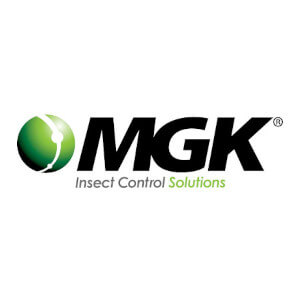Ant infestations are among the most common challenges faced by pest control technicians, but managing them effectively goes beyond just applying insecticides. In a recent unique study – a collaboration between MGK and the University of Florida – we’re advancing ant management by combining scientific research with consumer feedback. This innovative approach promises to enhance the efficacy of ant control applications while boosting client satisfaction, improving profitability and returning customers.
![]() This study was presented for the first time at PestWorld 2024 in an education session titled “The Original AI: How Active Ingredient and Customer Feedback combine for Improved Ant Management,” by exceptional educator and MGK collaborator and friend, Dr. Faith Oi, associate extension scientist at the University of Florida who specializes in urban entomology.
This study was presented for the first time at PestWorld 2024 in an education session titled “The Original AI: How Active Ingredient and Customer Feedback combine for Improved Ant Management,” by exceptional educator and MGK collaborator and friend, Dr. Faith Oi, associate extension scientist at the University of Florida who specializes in urban entomology.
Merging Science and Experience for Better Customer Understanding
Our team focused on understanding ant behavior, colony dynamics and the effectiveness of MGK’s Sumari® Insecticide in real-world field trials. What sets this research apart is its incorporation of customer experience, which plays a vital role in building a sustainable business model for PMPs. The experiments yielded promising results.
A major component of this study involved gathering data from pest control technicians and their clients. The research team incorporated surveys into the process, capturing feedback from customers who received ant services in their homes, providing valuable insights into how customers perceive the need to use a PMP’s services and the time it takes to achieve control. See how perceptions changed when the same questions were asked to homeowners both pre- and post-treatment.


Source: University of Florida, treatments performed April 28-29, 2022
Industry Benefits of a Blended Approach
For technicians, this study highlights the value of combining solid technical expertise with customer interaction. By leveraging both the research-backed insights on product performance and customer feedback, technicians can achieve more effective ant control and increase customer satisfaction and retention.
This joint study represents a step forward in pest control. With an integrated approach – combining research with practical consumer insights – we can build a framework that not only improves ant management outcomes but also enhances customer satisfaction.
By staying informed and engaged with both the science and the client experience, technicians can ensure their ant control treatments are both effective and appreciated.
Resources and Expertise
- Ants Pest Page
A comprehensive ant management library with videos, published resources and species-specific protocols - Professional Protocol Videos – Coming Soon!
For professionals treating ant infestations, watch our micro-learning video series - Ant Identification Poster
This popular quick reference guide is designed to be displayed on your office walls

